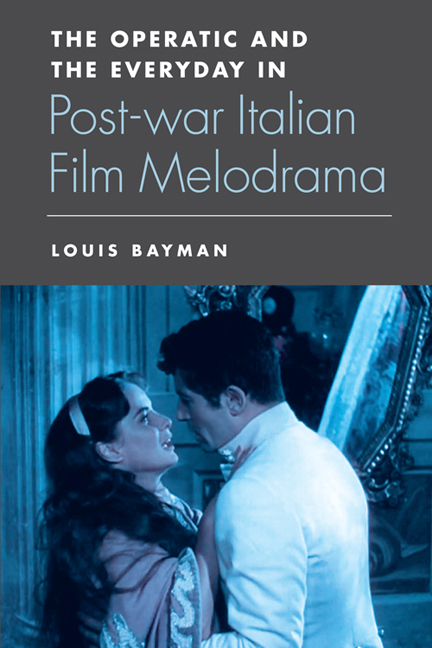Introduction: why melodrama?
Published online by Cambridge University Press: 05 August 2016
Summary
Of all the non-professional actors who appeared in post-war Italian cinema, one not usually considered as belonging to a neorealist impulse is Lidia Cirillo. Filmed sitting on a train at the beginning of Una donna ha ucciso [A Woman Has Killed] (Vittorio Cottafavi, 1952), she tells an apparently suicidal fellow female passenger her cautionary tale. This woman has killed, and the story is her own – that is, the story the film is based on is that of a real murder, carried out by Cirillo on her husband, an English soldier. In her study of women in post-war Italy, Garofalo noted that the public was in many ways approving in its reaction to the crime. In her defence Cirillo told the court: ‘I wanted to avenge, along with my honour, that of all the women of Italy’ (Garofalo 1956: 20). What connection does this comment reveal between the particular and the general? Is it revenge against an apparent liberator – a member of the Allied armies who had just freed the country from the Nazis, a redeemer of distressed damsels turned into a stranger within the home? Is this symbolic of Italian reconstruction, of the disappointment in life after the Liberation? In her claim to speak for ‘all the women of Italy’, does she testify to an explosive violence underlying the institution of marriage, or of the return of the repressed of war to the domestic sphere? Is it an overturning of gender relations, a sign of feminine hysteria, that prison is indistinguishable from an unhappy family? Or does it offer a moral tale of deplorable transgression, of the futility of the desire for fulfilment for women, or the language of resistance in the renewed conservatism prior to feminism? The film takes inspiration from a news event, one which seems itself inspired by a film. As a story, it is a point of intersection not only between the newspapers and courts, but with mainstream cinema and with the beginnings of what was to be called ‘women's studies’, as its consideration by Garofalo attests; indicating the common interest in both film and in wider discourses in the conditions of life – be they ordinary, popular, everyday – in Italy.
- Type
- Chapter
- Information
- Publisher: Edinburgh University PressPrint publication year: 2014



